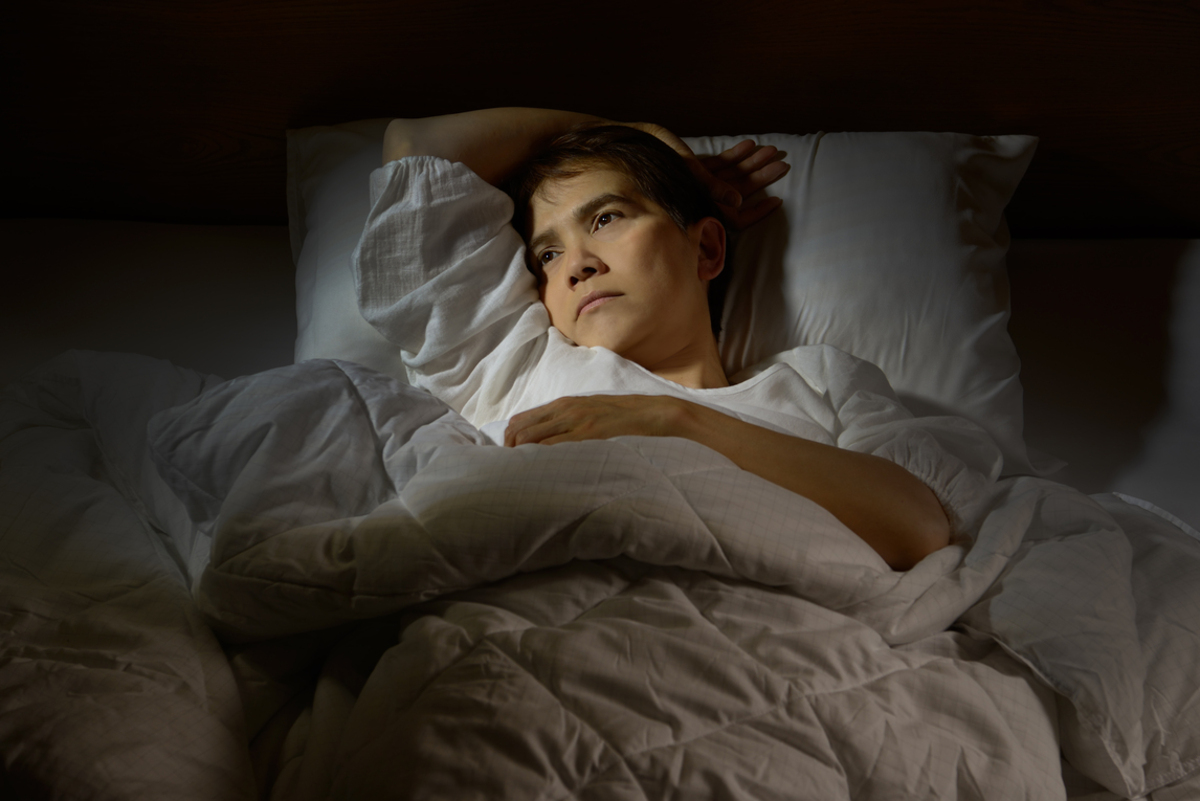"My heart skipped a beat" is a phrase often used to describe the feeling when someone is in love, or is scared, or experiences any other strong emotion. The saying is true to an extent because, in reaction to any strong emotion, the body releases a hormone called epinephrine, which triggers the heart to beat faster, giving the feeling of "skipping a beat".

What are heart palpitations?
Heart palpitations are the medical term used to describe the sensation when your heart is beating too hard, too fast, or fluttering. Although scary, most of the time, such palpitations are not serious or harmful. They may occur due to strong emotions, stress, anxiety, or excess consumption of substances like caffeine, alcohol, or nicotine. Palpitations are often felt during pregnancy in females.
What causes heart palpitations at night?
Waking up in the middle of the night due to a racing heart can often be distressing. However, as mentioned earlier, most incidents are one-off and harmless. Let's take a look at some of the more common reasons which may cause you to wake up with a racing heart.
1. Anxiety or stress and panic attacks
Anxiety causes the release of certain hormones like cortisol, which increase the blood pressure as well as increase the heart rate, causing rapid heartbeats. At the extreme end, someone can have an anxiety attack, or a sudden and extreme peak in fearfulness and worry.
2. Too much alcohol
Binge drinking can cause dehydration as well as tachycardia (a rapid heartbeat). Dehydration further impairs the ability of the heart muscles to function normally, leading to heart palpitations.
3. Too much caffeine
Caffeine is a natural stimulant found in coffee, cocoa, tea, soda, and energy bars or drinks. While minor quantities of caffeine are known to increase alertness by stimulating the nervous system, a high concentration of caffeine can cause a rapid heartbeat, anxiety, and nervousness.
4. Consuming too much sugar or carbohydrates before sleeping
Consuming foods containing high amounts of sugar, especially if you also have diabetes, can lead to a sudden spike in blood sugar levels.
The body interprets this high level of sugar as stress, releasing stress hormones, including Insulin. The insulin can rapidly decrease sugar levels and cause palpitations. Along with rapid heartbeats, high blood sugar levels may also cause sweating and a headache, known as a "sugar headache".
Consumption of foods containing high levels of carbohydrates, like pasta or bread may have a similar effect on the body.
5. Taking drugs that contain stimulants
Certain over the counter medications, often those used to treat coughs and the common cold, contain stimulants, like pseudoephedrine, a substance which increases the heart rate. Prescription drugs like those for treating hypothyroidism, asthma, ADHD, too, can cause heart palpitations.
6. Nightmares
A bad dream or night terror can set your heart racing. But your racing heart should subside once you calm down, in this case. Night terrors, a sleep disorder, can also increase your heart rate during the night.
7. Strenuous exercises
Heavy exercise causes the release of adrenaline, rapidly increasing the heart rate.
8. Menopause, pregnancy, or menstruation
Menopause, pregnancy, and menstruation can all cause a surge in levels of certain hormones in the female body, due to which heart palpitations may be felt.
When should you be concerned about heart palpitations?
While most episodes of heart palpitations are harmless and self-limiting, in some cases, heart palpitations might point towards a serious underlying heart condition.
If your palpitations are accompanied by dizziness, shortness of breath, fainting, or chest pain, it is advisable to seek immediate attention from a physician to diagnose the underlying cause. This is especially true of palpitations that appear frequently.
Heart conditions that can cause heart palpitations
When the heart rate becomes rapid or irregular due to an underlying cardiac condition, it is known as an arrhythmia. Arrhythmias can be caused by:
- Atrial fibrillation
- Cardiac failure
- Diseases of heart valves
- Heart failure
Tests to diagnose heart ailments in case of palpitations
The most important tool for diagnosing the cause of palpitations is a proper medical history. The physician will ask you questions regarding the trigger factors for palpitations, and other accompanying symptoms if any.
A proper history plays an important role in determining if the palpitations are actually caused due to heart disease or a lifestyle problem, and this will be followed up by diagnostic tests such as:
- ECG
- X-ray
- Echocardiogram
How are heart palpitations treated?
Depending on the cause, the treatment for palpitations may vary from patient to patient. If the palpitations are harmless and go away on their own, no treatment may be needed at all.
Your doctor may advise you to reduce stress by yoga and other relaxation exercises. Lifestyle changes like cutting down on alcohol, smoking, and caffeine may help in reducing the instances of palpitations. In case palpitations are caused due to a certain medication, your doctor may change the medicine to another molecule, which is safer.
If in spite of lifestyle changes and stress reduction, your palpitations persist, your doctor may prescribe you beta-blockers or calcium channel blockers in order to reduce the rate of your heartbeat.
Your physician will refer you to a cardiologist if an underlying cardiac problem is suspected, who may advise you medication or procedures to treat the underlying disease.
Conclusion
Most episodes of palpitations are self-limiting and need no treatment or intervention other the diet or lifestyle modifications. However, if they are accompanied by other symptoms, and repeated episodes of palpitations occur, it is better to consult your physician promptly in order to identify a more serious heart condition if any.


Your thoughts on this